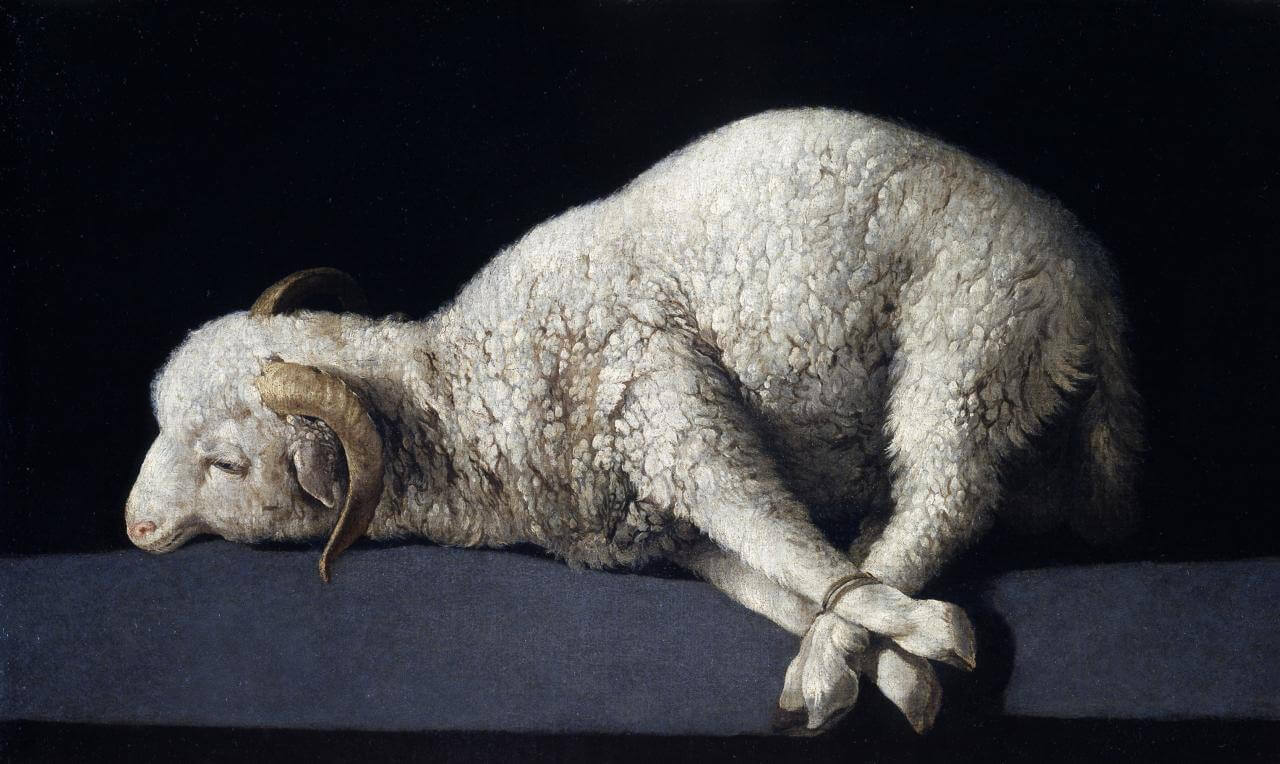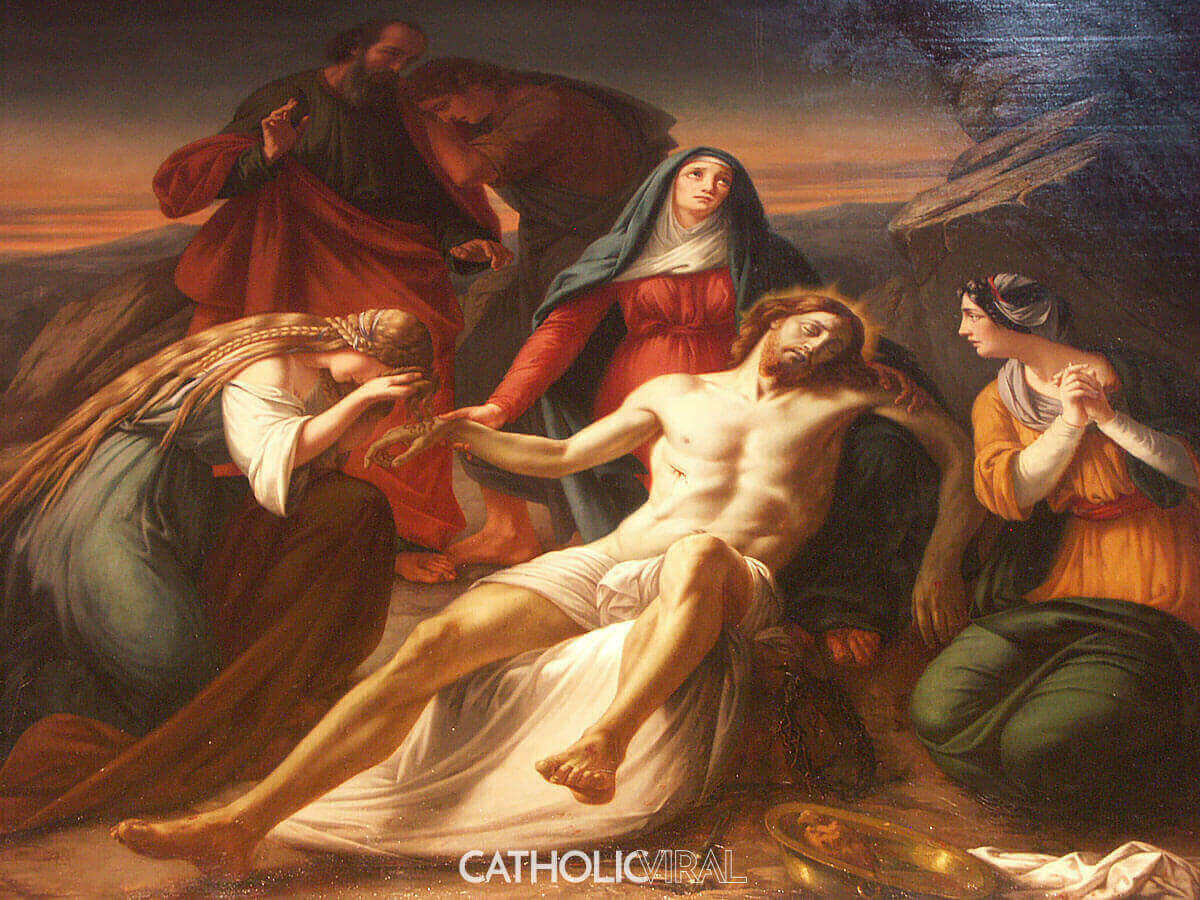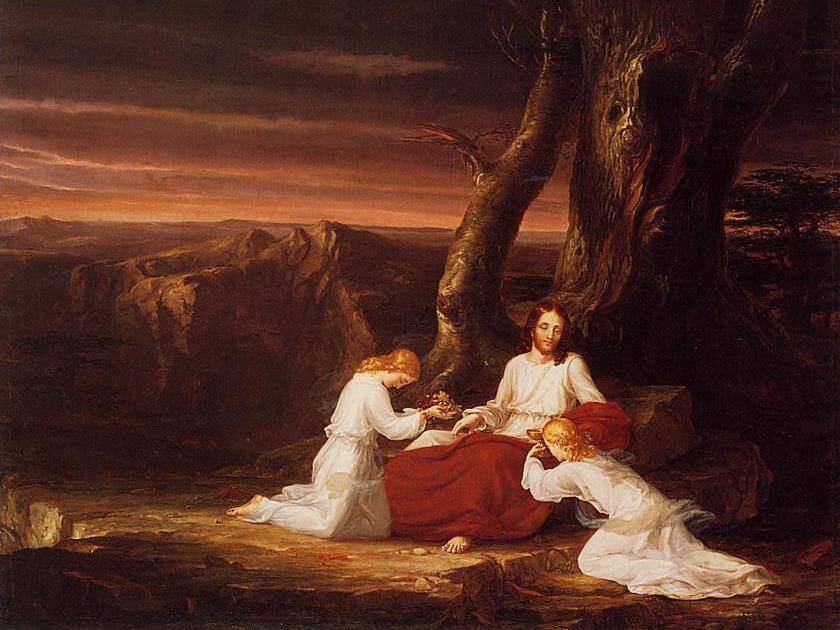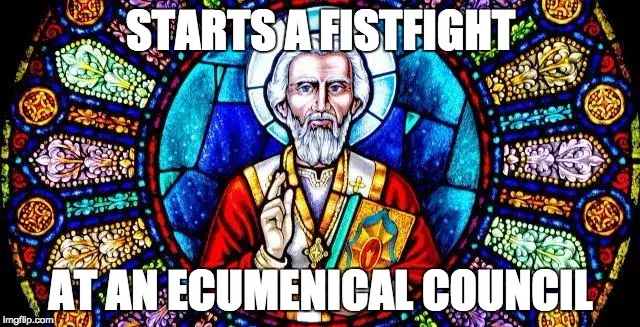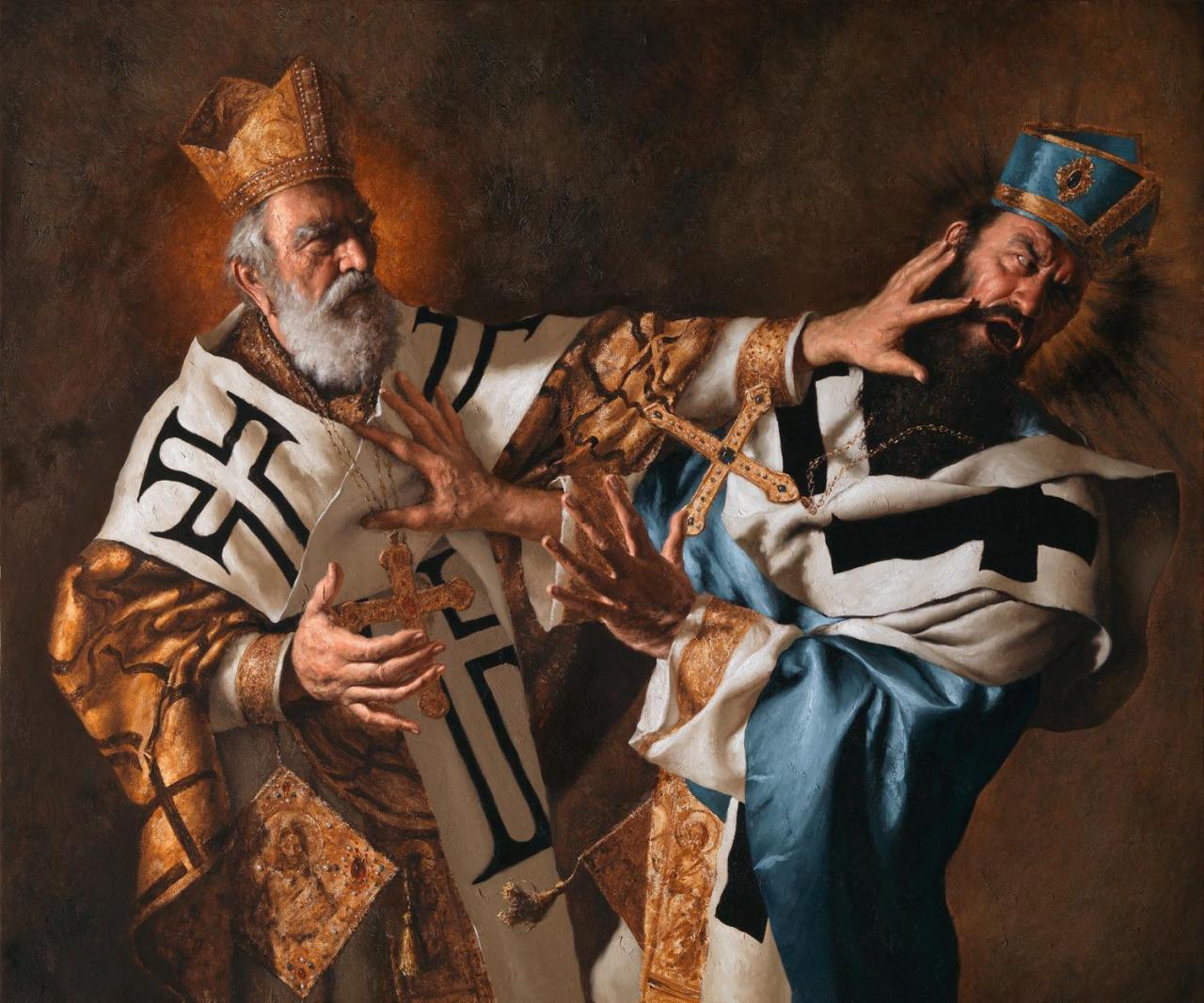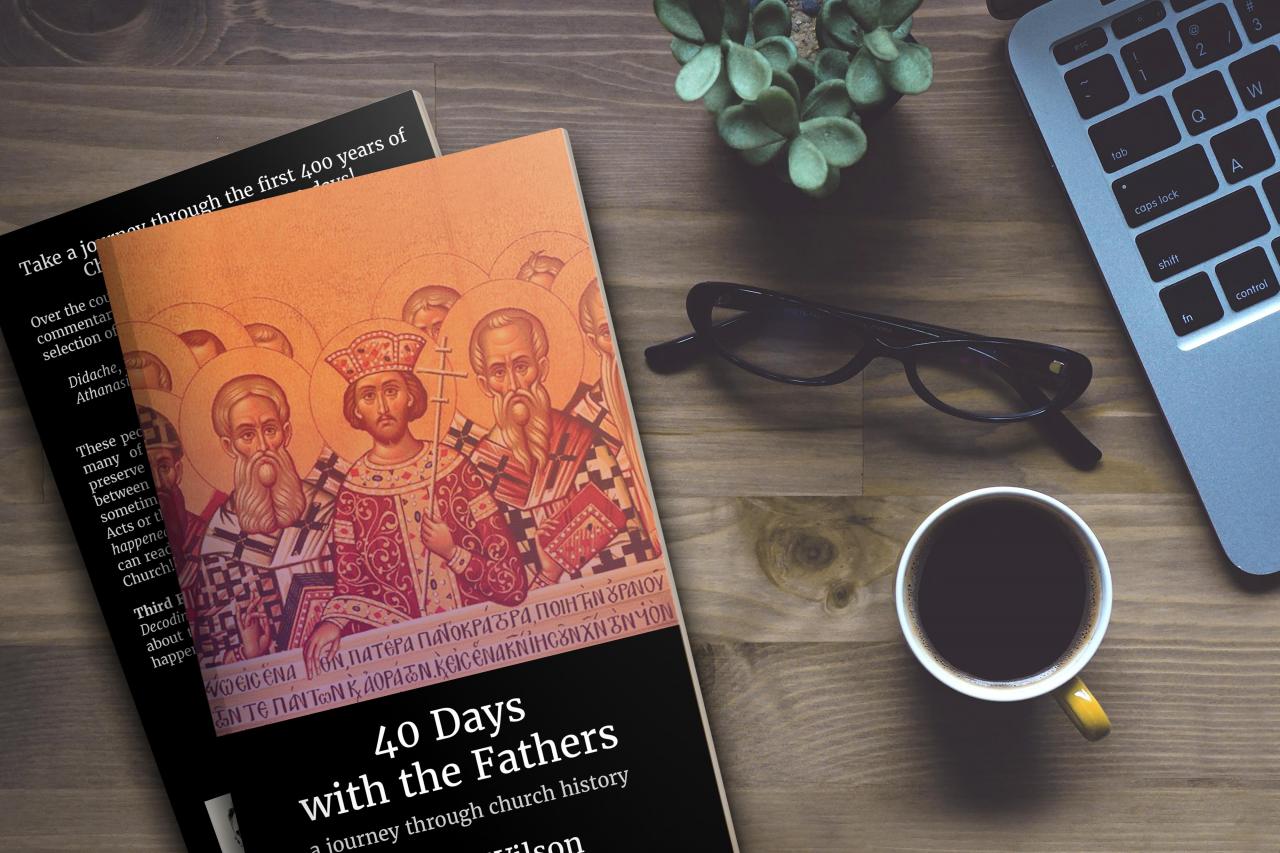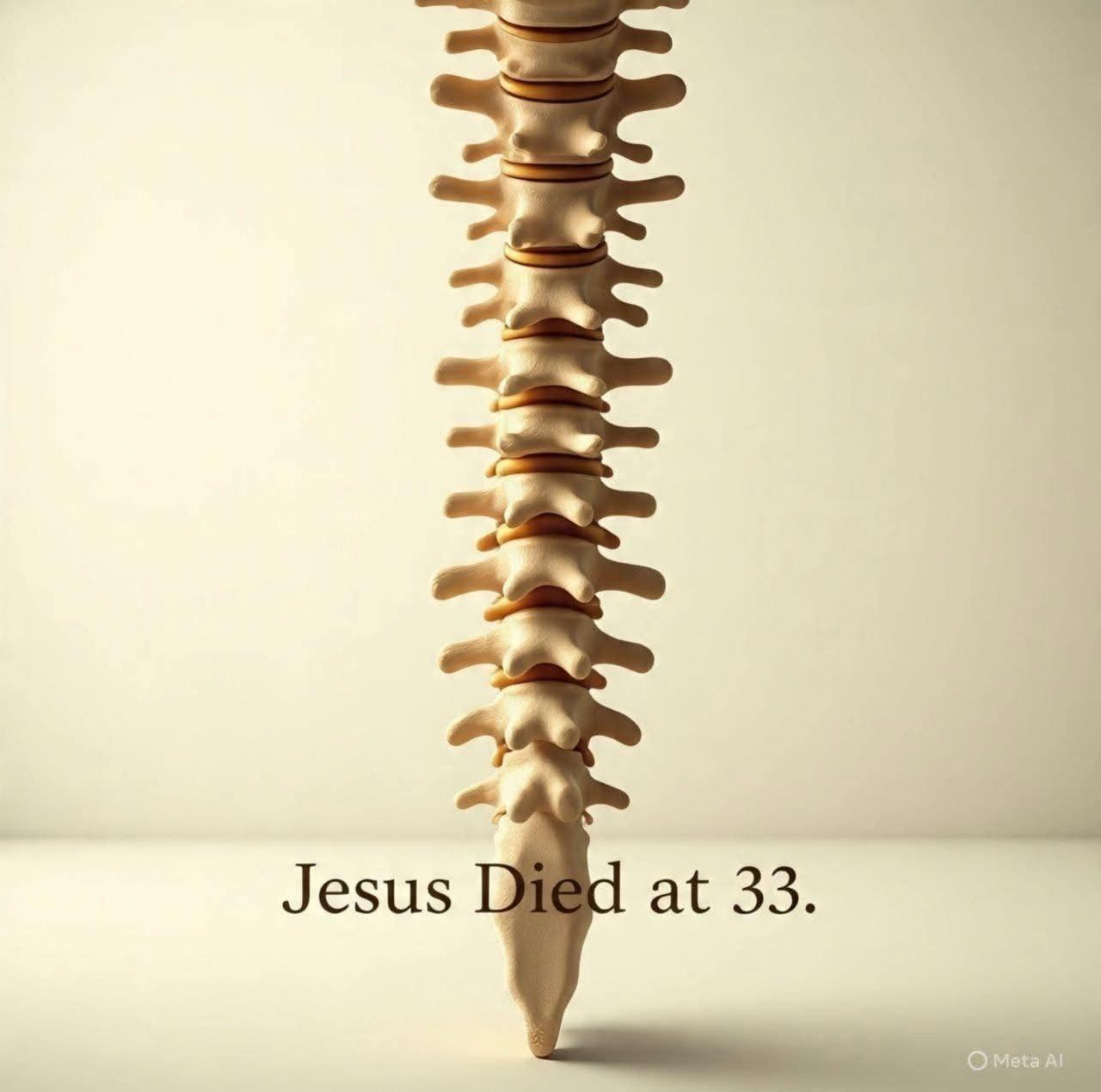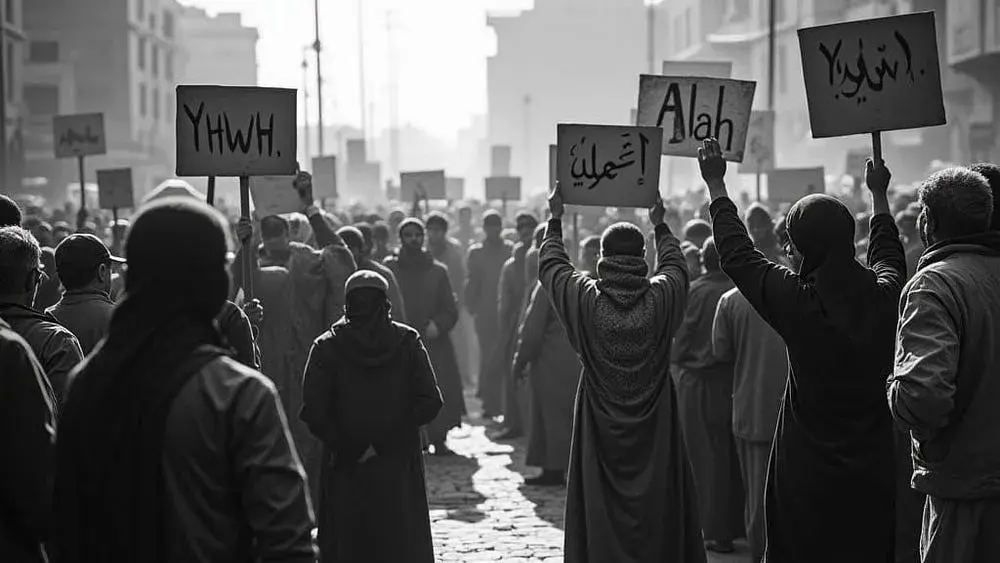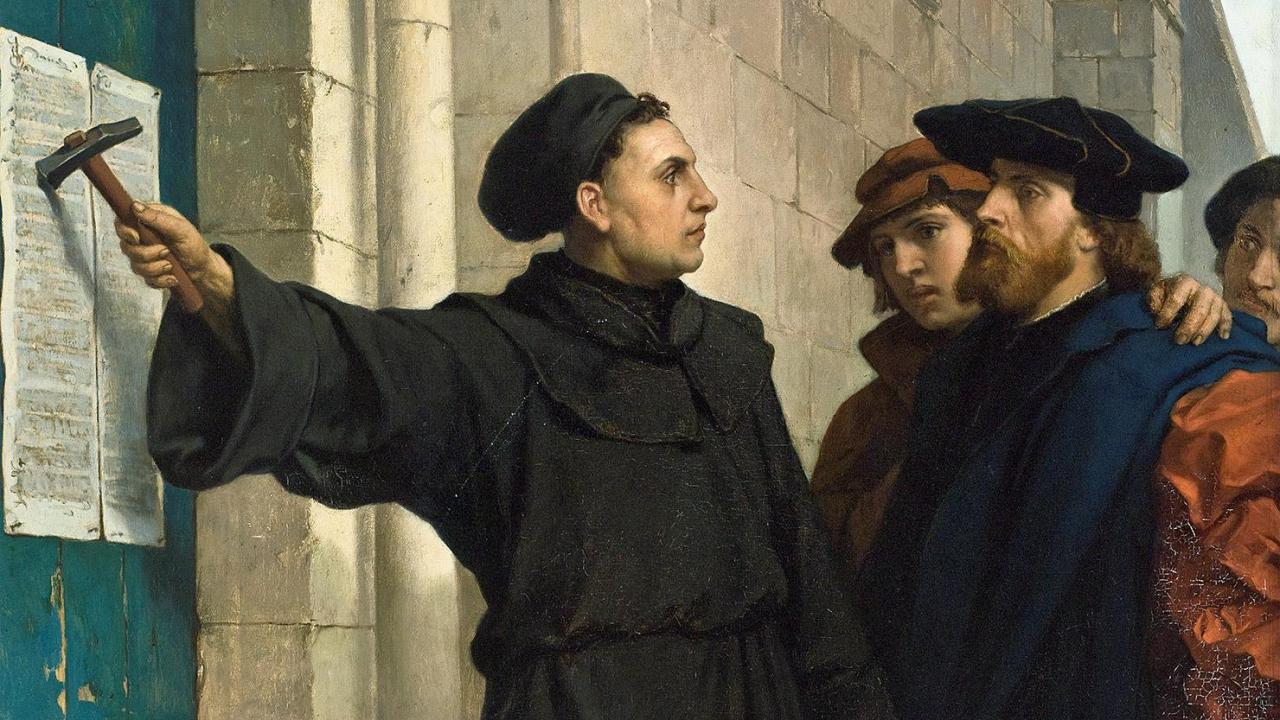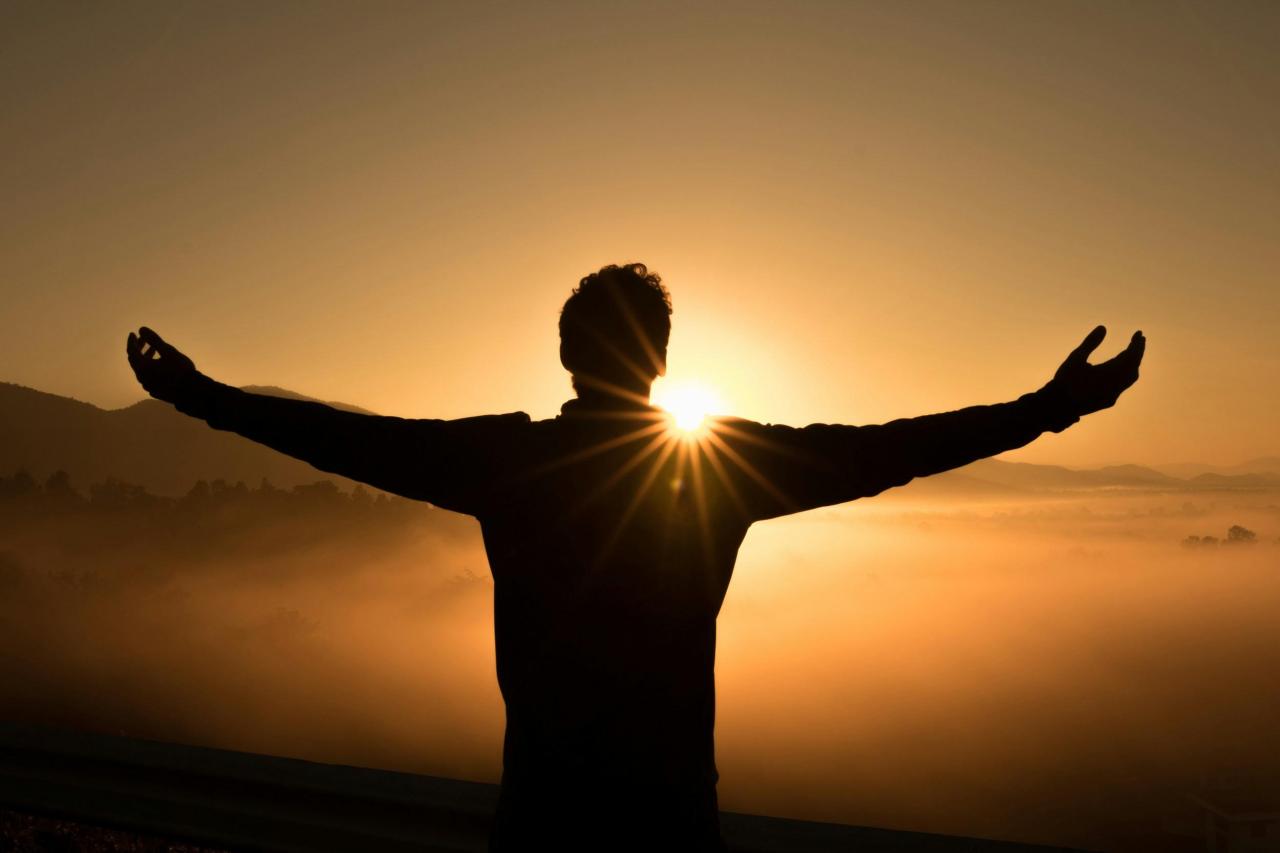Great Lent: The Season of Fasting

Fasting
A spiritual and physical discipline
Lent is upon us once again (according to Western tradition), and so I thought it’d be good to write something on the discipline of fasting, which is often neglected or overlooked in many Protestant churches.
And much like any major holiday, there is the usual arguments and accusations about how it's all just pagan festivities with a "Christian mask". Easter is no different, and usually gets hit the hardest over its so-called "pagan roots" or Lent being some "invention of the Catholic Church".
So, this year I decided to look into it a little, since I like to try and observe Lent, and it turns out that much of the accusations against Easter and Lent are nonsense and misinformation.
A 40 day fast prior to Easter has been a long established practice within the Church dating back to within the first century. This is well established from ancient letters we still have available, such as from Irenaeus:
For some consider themselves bound to fast one day, others two days, others still more. In fact, others fast forty days ... And this variety among observers [of the fasts] did not have its origin in our time, but long before in that of our predecessors.
–Irenaeus (c.180)
See here he notes that this was a practice passed onto them by their "predecessors", a term often used in conjunction with the Apostles themselves, or those which immediately came after them, putting the origins of this Lent fast much earlier than when Irenaeus wrote in 180.
While there is a tentative link to the name "Easter" and a old Saxon goddess, the older root of the word simply means "East" or "dawn" in some other renditions, according to an Etymological Dictionary:
Ester and oster, the early English and German words, both have their root in aus, which means east, shine, and dawn in various forms.
But an even more primitive root is where these words derive: Auferstehung which means resurrection! That seems more fitting for the Easter season, don't you think? Other than English and German, pretty much all other languages have some word with its root meaning coming from pascha - ie. Passover. Which is what the original Christians called this time of year too.
By the time of the Council of Nicaea (325 AD), Easter celebrations within the Church was a standard event which was preceded by 40 days of fasting. Athanasius had a custom of writing his "paschal (Easter) letters" to the churches at this time of year to give encouragement for fasting and self-control and moderation, linking the 40 days to the length of Jesus' fast in the desert. His letters are useful as they show quite clearly that the time of Lent and Easter have been established for many centuries in the Church and are nothing to do with paganism!
The beginning of the fast of forty days is on the fifth of the month Phamenoth [Ash Wednesday]; and when, as I have said, we have first been purified and prepared by those days, we begin the holy week of the great Easter on the tenth of the month Pharmuthi [Palm Sunday], in which, my beloved brethren, we should use more prolonged prayers, and fastings...
I won't go into much more detail on the history of Lent and Easter (or pascha), but I hope you can see from this brief intro that the practice has been well established in the historical Church since the beginning, and isn't a "new" or invented thing merged from/with paganism and fertility goddesses.
So with that said, let's take a look at the practice of fasting. It seems to be a spiritual discipline which has been pushed aside in many churches today, with prayer, worship and bible reading taking more precedence in a Christian's life instead (not that those are bad things to do!).
Why fast?
- Fasting is participation in the Gospel. It is the ‘death’ of the flesh through denial, so that we can enjoy the resurrection of Christ in the spirit (Rom 8:13, Col 3:5).
- It’s pure discipline and obedience.
- It’s putting to death the body – killing the flesh in order to live by the Spirit. (Gal 5:17)
- It’s training you in self-control and disciple, growing the fruit of the Spirit.
- To receive visions and revelation, and to hear from God.
- To strengthen willpower.
- To not be ruled by your desires and cravings – impulse control.
- To focus on God and not ourselves.
- To be in control of your body and to make your desires subject to you, not vice versa.
- For self-denial to overcome temptations and learn discipline.
- For repentance.
- For prayers for your enemies/persecutors and forgiveness.
(See a more in-depth examination of early Christian thought on fasting and the reasons for doing so here: Fasting through patristic era.)
Some Fasting Guidelines
If you want to fast in the same way as the Early Church and keep with historical Christianity, fast every day until sunset (or 3pm) during your fasting period. Historically also, the Church has always had a weekly partial fast on Wednesdays and Fridays alongside other times (such as Lent).
Generally, you can drink what you like (except soup, as it’s still a food), though there are different types of fasts the Church has kept throughout the year (the Catholic and Eastern Orthodox churches still do this) which have different restrictions, like no alcohol. But plenty of water is ideal in any case.
The first five days or so will be the hardest if you observe the strict fast for a longer period of time. Persevere past this as it does get easier! I've always been told to drink a large glass of milk if you experience headaches, I'm not sure why this helps but it does seem to!
It’s not a sin to tell people you are fasting! The warnings of Jesus in Matt 6:16 about not looking dismal and sad, is like the warnings against public prayer – it’s all down to motivation. If you do it for the praise of others, or to look “super spiritual” then you have gained an earthly reward and lost a heavenly one. If people notice and ask, tell them. It may be an opportunity to witness about your faith, as it’s fairly unusual for people to hear of these days; just don’t go around advertising it or boasting, that’s all!
Remember what Jesus says in Matthew 6:16-18 – go about your days as normal!
As with the historical tradition: don’t fast on Sundays – this is because it is a day of celebration in remembrance of the resurrection; a “mini-feast day” as it’s known! Also, this is why and how the forty days “fits” from Ash Wednesday to Easter Saturday, by not counting the Sundays of Lent, otherwise it would be 46 days.
Types of Fasts
There’s a whole variety of different fasts which the Church has observed over the years (see this calendar as an example of Orthodox fasting)!
But here’s a breakdown of some typical fasts which anyone in good health should be able to keep which I’ve taken from the various teachings found in the Church Fathers letters on fasting and Lent:
- Weekly: A fast observed every Wednesday and Friday until sundown in the Traditional practice (see below) or a bread and water only diet. Wednesdays and Fridays were chosen for two reasons:
-
Initially, to be on opposite days to the Pharisees (as this practise began during the start of the Church and is recorded as such in the Didache 8:1 and the Apostolic Constitutions, VII:XXIII); and,
-
because Wednesday was when Jesus was betrayed, and Friday because of the crucifixion and Passion.
- Traditional: basically a vegan-like diet; no meat, fish, dairy or oils/dressings. No alcohol either, just water. This is the same type which was done weekly on Wed and Fri too, and was based on Dan 10:3 –
“I had eaten no rich food, no meat or wine had entered my mouth, and I had not anointed myself at all, for the full three weeks.” - Simple: No food until sundown/next day, drink anything during fast hours (except soup still). This has typically been the teaching of how to fast in many Protestant/Evangelical/Non-Denom churches I’ve been in, and is somewhat in line with the ancient historic early practices.
- Strict: No food or drink except water all day (except maybe milk for headaches), or until the fast ends. This type was historically observed only on Saturdays, although it varies amongst Christian traditions (as do all these ‘types’).
Observe any as you are able and healthy to do so. As we fast, we should remember the true and better fast which God prefers and spoke of through Isaiah in Isaiah 58:6-9–
Is not this the fast that I choose: to loose the bonds of injustice, to undo the thongs of the yoke, to let the oppressed go free, and to break every yoke?
Verse 10 onwards tells us that living holy and right before the LORD as our spiritual fast, He shall guard us and give us good health, and shall answer us.
What to do during your fast?
Replace mealtimes with and hunger pangs with prayer and/or Bible study. Read a chapter or two of a Gospel each meal time and work your way through the whole New Testament.
Pray! “But I don’t have enough things/people to pray for!” you may say – Make a list and routine of people and/or issues you care about and pray for these each day and see where the Holy Spirit leads you. Pray the Lord’s Prayer.
Pray for protection. You will no doubt experience some sort of spiritual attack and strong temptation. Keep your guard up and mind focussed on God. Put on the armour of God (Eph 6:11). Remember, even Jesus didn’t escape this attack from the devil during His long fast (Matthew 4:1-11)!
Learn to pray contemplative prayer. Ps 46:10 – “Be still, and know that I am God!”
This is an ancient type of Christian meditation which is the complete opposite to secular and Eastern religious meditation which aims to empty your mind. Christian meditation is about filling your mind with thoughts and reflections on and about God and Scripture – to really focus on a verse or passage of Scripture and to pray and wait on God in silence until you become aware of His presence and His voice (in whatever form that takes, i.e. visions, pictures, words etc.), and are filled with the Spirit who can reveal the deeper things of God and Scripture (1 Corinthians 2:10).
You can read more on this type of prayer, and its Scriptural basis, in my other article, here.
Pray the ancient “Jesus Prayer”: “Lord Jesus Christ, Son of God, have mercy on me, a sinner.”
When words fail you and your mind is busy and cluttered, I have found this to be most helpful in stilling and focusing the mind completely on God. This practise dates back to around the 4th century when monks endeavoured to do as Paul instructed when he wrote to “pray without ceasing” (1 Thessalonians 5:16-18).
The prayer is simple and easy to remember, with the point that you can pray it anywhere, anytime when you want to focus; or during contemplative prayer when you have time to really focus on each word and phrase and its meaning. It is said that this prayer contains the essence of the Gospel, and so praying it continually will help you to remember and realise the great truth that the Son of God came down from glory to be a man and die for us while we were still sinners.
Some Encouragement on Fasting
Fasting can be hard! It’s not easy – there’s no denying that, and it’s probably why it’s fell out of fashion and practise in the modern church as it goes so much against our comfortable lifestyles, it’s almost painful! But that’s also precisely why we should fast! It is so totally counter-cultural that we cannot help but be refocused away from this world and all its distractions, and back onto God and to spiritual things.
Read through the Gospels and we’ll see Jesus stating that “When you fast…” (Matthew 6:17) – not if; and even throughout the book of Acts we can see that the early church fasted regular and often, especially when they sought direction from God.
If it were not for the church fasting and praying in Acts 13:1-4, they may not have heard from the Holy Spirit about sending Paul out on his first missionary journey, and if he had not done that, the faith may never have spread as far and fast as it did, nor would we have the majority of our New Testament! Fasting is a vital church discipline, I believe.
Similar, history changing events, also happened from prayer and fasting in 2 Chronicles 20, and the post-Acts early church. Here’s a quick quote from Tertullian (c.198) and Irenaeus (c.180), respectively, on the power of prayer and fasting:
“When, indeed, have droughts not been put away by our kneeling and our fastings?”
“When the entire church in that particular locality entreated God with much fasting and prayer, the spirit of the dead man has returned, and he has been bestowed in answer to the prayers of the saints.
The general belief about fasting, which we can see in the early writings, also shows that the Church taught not only abstaining from food, but any evil deed, word or thought (Clement of Alexandria, c.195), and that during a fast, our prayers “ascend with more acceptability” (Tertullian c.198).
Also, even here in Britain in 1756! John Wesley recounts a time when the King of England called for a time of fasting and prayer when France threatened to invade. He wrote in his journal:
“The fast day was a glorious day, such as London has scarce seen since the Restoration. Every church in the city was more than full, and a solemn seriousness sat on every face. Surely God heareth prayer, and there will yet be a lengthening of our tranquillity.”
He later noted that following this, the invasion was averted! More accounts of national prayer and fasting in crisis times can be read here.
In one of the earliest post-New Testament books we have still in existence, called The Shepherd, the writer, Hermas, is fasting and praying and gives advice to other Christians on the practice. As well as mentioning the 'lifestyle fast' of Isa. 58, he says:
“Be on your guard against every evil word, and every evil desire, and purify your heart from the vanities of this world. If you guard against these things, your fasting will be perfect.”
Our fasting is as much about living right and conforming ourselves to the mind of Christ, as it is about avoiding certain foods for a time. As Augustine wrote, there are three main things we ought to do in order to live a righteous life, which he deduced from Jesus’ teachings in the Gospels: fasting, alms and prayers.
“Now in the fasting [Jesus] indicates the entire subjugation of the body; in the alms, all kindness of will and deed, either by giving or forgiving; and in prayers He implies all the rules of a holy desire.” –Augustine, Treatise on Man’s Perfection in Righteousness, ch.18.
Closing prayer
May our lives be a spiritual fast of Isaiah 58 and our bodies be a spiritual sacrifice in worship to God, as of Romans 12:1 and 1 Peter 2:5-6, as we humble ourselves and learn humility and self-control through physical fasting; putting to death the flesh so that we may be made alive in the Spirit!
Amen.
Further Reading:
- Redeeming Holy Days from Pagan Lies — Ash Wednesday and Lent
- History of Lent — Catholic Education Resource Center
- Creedal Christians: The Nicene Creed
- Philip Schaff: NPNF2–04. Athanasius: Select Works and Letters
- February 2023 — Greek Orthodox Archdiocese of America
- A Tale of Two Easters
- ~The Didache~
- CHURCH FATHERS: Apostolic Constitutions, Book VII
- https://www.buzzsprout.com/3196/52849-fasting-for-divine-intervention-fasting-edition-45
- Nicene and Post-Nicene Fathers, Vol. V: A Treatise Concerning Man’s Perfection…: Section 18
- Chapter 3: Fasting Through The Patristic Era | Bible.org
Lent Reading/Devotional Plan:
- 40 Days with the Fathers: A Journey Through Church History
- 40 Days with the Fathers: Companion Texts
Leave a comment Like Back to Top Seen 3.4K times Liked 0 times
Enjoying this content?
Support my work by becoming a patron on Patreon!
By joining, you help fund the time, research, and effort that goes into creating this content — and you’ll also get access to exclusive perks and updates.
Even a small amount per month makes a real difference. Thank you for your support!
Subscribe to Updates
If you enjoyed this, why not subscribe to free email updates and join over 864 subscribers today!
My new book is out now! Order today wherever you get books
Recent Posts
Luke J. Wilson | 19th August 2025 | Fact-Checking
A poetic post has been circulating widely on Facebook, suggesting that our anatomy mirrors various aspects of Scripture. On the surface it sounds inspiring, but when we take time to weigh its claims, two main problems emerge. The viral post circulating on Facebook [Source] First, some of its imagery unintentionally undermines the pre-existence of Christ, as if Jesus only “held the earth together” for the 33 years of His earthly life. Second, it risks reducing the resurrection to something like biological regeneration, as if Jesus simply restarted after three days, instead of being raised in the miraculous power of God. Alongside these theological dangers, many of the scientific claims are overstated or symbolic rather than factual. Let’s go through them one by one. 1. “Jesus died at 33. The human spine has 33 vertebrae. The same structure that holds us up is the same number of years He held this Earth.” The human spine does generally have 33 vertebrae, but that number includes fused bones (the sacrum and coccyx), and not everyone has the same count. Some people have 32 or 34. More importantly, the Bible never says Jesus was exactly 33 when He died — Luke tells us He began His ministry at “about thirty” (Luke 3:23), and we know His public ministry lasted a few years, but His precise age at death is a tradition, not a biblical statement. See my other recent article examining the age of Jesus here. Theologically, the phrase “the same number of years He held this Earth” is problematic. Jesus did not hold the world together only for 33 years. The eternal Word was with God in the beginning (John 1:1–3), and “in Him all things hold together” (Colossians 1:17). Hebrews says He “sustains all things by His powerful word” (Hebrews 1:3). He has always upheld creation, before His incarnation, during His earthly ministry, and after His resurrection. To imply otherwise is to risk undermining the pre-existence of Christ. 2. “We have 12 ribs on each side. 12 disciples. 12 tribes of Israel. God built His design into our bones.” Most people do have 12 pairs of ribs, though some are born with an extra rib, or fewer. The number 12 is certainly biblical: the 12 tribes of Israel (Genesis 49), the 12 apostles (Matthew 10:1–4), and the 12 gates and foundations of the New Jerusalem (Revelation 21). But there’s no biblical connection between rib count and these symbolic twelves. This is a case of poetic association, not design woven into our bones. The only real mention of ribs in Scripture is when Eve is created from one of Adam’s ribs in Genesis 2:21–22, which has often led to the teaching in some churches that men have one less rib than women (contradicting this new claim)! 3. “The vagus nerve runs from your brain to your heart and gut. It calms storms inside the body. It looks just like a cross.” The vagus nerve is real and remarkable. It regulates heart rate, digestion, and helps calm stress, and doctors are even using vagus nerve stimulation as therapy for epilepsy, depression, and inflammation showing it really does “calm storms” in the body. But it does not look like a cross anatomically. The language about “calming storms” may echo the way Jesus calmed the storm on the Sea of Galilee (Mark 4:39), but here again the poetic flourish stretches science (and Scripture) beyond what’s accurate. 4. “Jesus rose on the third day. Science tells us that when you fast for 3 days, your body starts regenerating. Old cells die. New ones are born. Healing begins. Your body literally resurrects itself.” There’s a serious theological problem here. To equate Jesus’ resurrection with a biological “regeneration” after fasting is to misrepresent what actually happened. Fasting can indeed trigger cell renewal and immune repair, but it cannot bring the dead back to life. It’s still a natural process that happens...
Luke J. Wilson | 08th July 2025 | Islam
“We all worship the same God”. Table of Contents 1) Where YHWH and Allah Appear Similar 2) Where Allah’s Character Contradicts YHWH’s Goodness 3) Where Their Revelations Directly Contradict Each Other 4) YHWH’s Love for the Nations vs. Allah’s Commands to Subjugate 5) Can God Be Seen? What the Bible and Qur’an Say 6) Salvation by Grace vs. Salvation by Works Conclusion: Same God? Or Different Revelations? You’ve heard it from politicians, celebrities, and even some pastors. It’s become something of a modern mantra, trying to shoehorn acceptance of other beliefs and blend all religions into one, especially the Abrahamic ones. But what if the Bible and Qur’an tell different stories? Let’s see what their own words reveal so you can judge for yourself. This Tweet recently caused a stir on social media 1) Where YHWH and Allah Appear Similar Many point out that Jews, Christians, and Muslims share a belief in one eternal Creator God. That’s true — up to a point. Both the Bible and Qur’an describe God as powerful, all-knowing, merciful, and more. Here’s a list comparing some of the common shared attributes between YHWH and Allah, with direct citations from both Scriptures: 26 Shared Attributes of YHWH and Allah According to the Bible (NRSV) and the Qur’an Eternal YHWH: “From everlasting to everlasting you are God.” — Psalm 90:2 Allah: “He is the First and the Last…” — Surah 57:3 Creator YHWH: “In the beginning God created the heavens and the earth.” — Genesis 1:1 Allah: “The Originator of the heavens and the earth…” — Surah 2:117 Omnipotent (All-Powerful) YHWH: “Nothing is too hard for you.” — Jeremiah 32:17 Allah: “Allah is over all things competent.” — Surah 2:20 Omniscient (All-Knowing) YHWH: “Even before a word is on my tongue, O LORD, you know it.” — Psalm 139:4 Allah: “He knows what is on the land and in the sea…” — Surah 6:59 Omnipresent (Present Everywhere) YHWH: “Where can I go from your Spirit?” — Psalm 139:7–10 Allah: “He is with you wherever you are.” — Surah 57:4 Holy YHWH: “Holy, holy, holy is the LORD of hosts.” — Isaiah 6:3 Allah: “The Holy One (Al-Quddus).” — Surah 59:23 Just YHWH: “A God of faithfulness and without injustice.” — Deuteronomy 32:4 Allah: “Is not Allah the most just of judges?” — Surah 95:8 Merciful YHWH: “The LORD, merciful and gracious…” — Exodus 34:6 Allah: “The Most Gracious, the Most Merciful.” — Surah 1:1 Compassionate YHWH: “As a father has compassion on his children…” — Psalm 103:13 Allah: “He is the Forgiving, the Affectionate.” — Surah 85:14 Faithful YHWH: “Great is your faithfulness.” — Lamentations 3:22–23 Allah: “Indeed, the promise of Allah is truth.” — Surah 30:60 Unchanging YHWH: “For I the LORD do not change.” — Malachi 3:6 Allah: “None can change His words.” — Surah 6:115 Sovereign YHWH: “The LORD has established his throne in the heavens…” — Psalm 103:19 Allah: “Blessed is He in whose hand is dominion…” — Surah 67:1 Loving YHWH: “God is love.” — 1 John 4:8 Allah: “Indeed, my Lord is Merciful and Affectionate (Al-Wadud).” — Surah 11:90 Forgiving YHWH: “I will not remember your sins.” — Isaiah 43:25 Allah: “Allah forgives all sins…” — Surah 39:53 Wrathful toward evil YHWH: “The LORD is a jealous and avenging God…” — Nahum 1:2 Allah: “For them is a severe punishment.” — Surah 3:4 One/Unique YHWH: “The LORD is one.” — Deuteronomy 6:4 Allah: “Say: He is Allah, One.” — Surah 112:1 Jealous of worship YHWH: “I the LORD your God am a jealous God.” �...
Luke J. Wilson | 05th June 2025 | Blogging
As we commemorated the 500th anniversary of the Protestant Reformation this year, the familiar image of Martin Luther striding up to the church door in Wittenberg — hammer in hand and fire in his eyes — has once again taken centre stage. It’s a compelling picture, etched into the imagination of many. But as is often the case with historical legends, closer scrutiny tells a far more nuanced and thought-provoking story. The Myth of the Door: Was the Hammer Ever Raised? Cambridge Reformation scholar Richard Rex is one among several historians who have challenged the romanticised narrative. “Strangely,” he observes, “there’s almost no solid evidence that Luther actually went and nailed them to the church door that day, and ample reasons to doubt that he did.” Indeed, the first image of Luther hammering up his 95 Theses doesn’t appear until 1697 — over 180 years after the fact. Eric Metaxas, in his recent biography of Luther, echoes Rex’s scepticism. The earliest confirmed action we can confidently attribute to Luther on 31 October 1517 is not an act of public defiance, but the posting of two private letters to bishops. The famous hammer-blow may never have sounded at all. Conflicting Accounts Philip Melanchthon, Luther’s successor and first biographer, adds another layer of complexity. He claimed Luther “publicly affixed” the Theses to the door of All Saints’ Church, but Melanchthon wasn’t even in Wittenberg at the time. Moreover, Luther himself never mentioned posting the Theses publicly, even when recalling the events years later. Instead, he consistently spoke of writing to the bishops, hoping the matter could be addressed internally. At the time, it was common practice for a university disputation to be announced by posting theses on church doors using printed placards. But no Wittenberg-printed copies of the 95 Theses survive. And while university statutes did require notices to be posted on all church doors in the city, Melanchthon refers only to the Castle Church. It’s plausible Luther may have posted the Theses later, perhaps in mid-November — but even that remains uncertain. What we do know is that the Theses were quickly circulated among Wittenberg’s academic elite and, from there, spread throughout the Holy Roman Empire at a remarkable pace. The Real Spark: Ink, Not Iron If there was a true catalyst for the Reformation, it wasn’t a hammer but a printing press. Luther’s Latin theses were swiftly reproduced as pamphlets in Basel, Leipzig, and Nuremberg. Hundreds of copies were printed before the year’s end, and a German translation soon followed, though it may never have been formally published. Within two weeks, Luther’s arguments were being discussed across Germany. The machinery of mass communication — still in its relative infancy — played a pivotal role in what became a theological, political, and social upheaval. The Letters of a Conscientious Pastor Far from the bold revolutionary of popular imagination, Luther appears in 1517 as a pastor deeply troubled by the abuse of indulgences, writing with respectful concern to those in authority. In his letter to Archbishop Albrecht of Mainz, he humbly addresses the archbishop as “Most Illustrious Prince,” and refers to himself as “the dregs of humanity.” “I, the dregs of humanity, have so much boldness that I have dared to think of a letter to the height of your Sublimity,” he writes — hardly the voice of a man trying to pick a fight. From Whisper to Roar Luther’s initial appeal through formal channels was, predictably, ignored. He was advised not to make trouble. But as opposition mounted and corruption remained unchecked, the once quiet reformer grew louder. His theological convictions deepened, and his public persona evolved. The lion did eventually roar — but not on October 31. A Catholic Reformer, Not a Protestant Founder It’s vital to remem...
Luke J. Wilson | 20th May 2025 | Islam
You are not alone. Around the world, many Muslims — people who already believe in one God, pray, and seek to live righteously — are drawn to know more about Jesus (ʿĪsā in Arabic). Some have heard He is more than a prophet. Some have sensed His presence in a dream or vision. And some simply long to know God more deeply, personally, and truly. So what does it mean to become a Christian? And how can you take that step? This guide is for you. 1. What Christians Believe About God and Jesus ➤ One God, Eternal and Good Christians believe in one God — the same Creator known to Abraham, Moses, and the prophets. But we also believe God is more personal and relational than many realise. In His love, He has revealed Himself as Father, Son (Jesus), and Holy Spirit — not three gods, but one God in three persons. ➤ Jesus Is More Than a Prophet Muslims honour Jesus as a great prophet, born of the virgin Mary. Christians also affirm this — but go further. The Bible teaches that Jesus is the Word of God (Kalimat Allāh), who became flesh to live among us. He performed miracles, healed the sick, raised the dead — and lived without sin.Jesus came not just to teach but to save — to bring us back to God by bearing our sins and rising again in victory over death. 2. Why Do We Need Saving? ➤ The Problem: Sin All people — no matter their religion — struggle with sin. We lie, get angry, feel jealous, act selfishly, or fail to love God fully. The Bible says: “All have sinned and fall short of the glory of God.” (Romans 3:23) Sin separates us from God. And no matter how many good deeds we do, we can never make ourselves perfect or holy before Him. ➤ The Solution: Jesus Because God loves us, He did not leave us in our sin. He sent Jesus, His eternal Word, to live as one of us. Jesus died willingly, offering His life as a sacrifice for our sins, then rose again on the third day. “But God proves his love for us in that while we still were sinners Christ died for us.” (Romans 5:8) 3. How Do I Become a Christian? Becoming a Christian is not about joining a Western religion. It’s about entering a relationship with God through faith in Jesus Christ. Here is what the Bible says: ✝️ 1. Believe in Jesus Believe that Jesus is the Son of God, that He died for your sins, and that He rose again. “If you confess with your lips that Jesus is Lord and believe in your heart that God raised him from the dead, you will be saved.” (Romans 10:9) 💔 2. Repent of Your Sins Turn away from sin and ask God to forgive you. This is called repentance. It means being truly sorry and choosing a new way. “Repent therefore, and turn to God so that your sins may be wiped out.” (Acts 3:19) 💧 3. Be Baptised Jesus commands His followers to be baptised in water as a sign of their new life. Baptism represents washing away your old life and rising into a new one with Jesus. “Repent and be baptised every one of you in the name of Jesus Christ so that your sins may be forgiven.” (Acts 2:38) 🕊️ 4. Receive the Holy Spirit When you believe in Jesus, God gives you the Holy Spirit to live within you, guiding you, comforting you, and helping you follow His will. “You received the Spirit of adoption, by whom we cry, ‘Abba! Father!’” (Romans 8:15) 🧎 5. Begin a New Life As a Christian, you are born again — spiritually renewed. You begin to grow in faith, love, and holiness. You read the Bible, pray, fast, and gather with other believers. Your life is no longer your own; you now live for God. 4. What Does a Christian Life Look Like? Jesus said: “If anyone wants to become my followers, let them deny themselves and take up their cross and follow me.” (Matthew 16:24) This means: Loving God with all your heart Loving your neighbour — even your enemies Forgiving others ...



